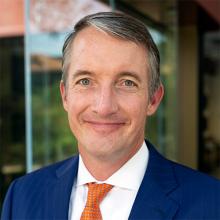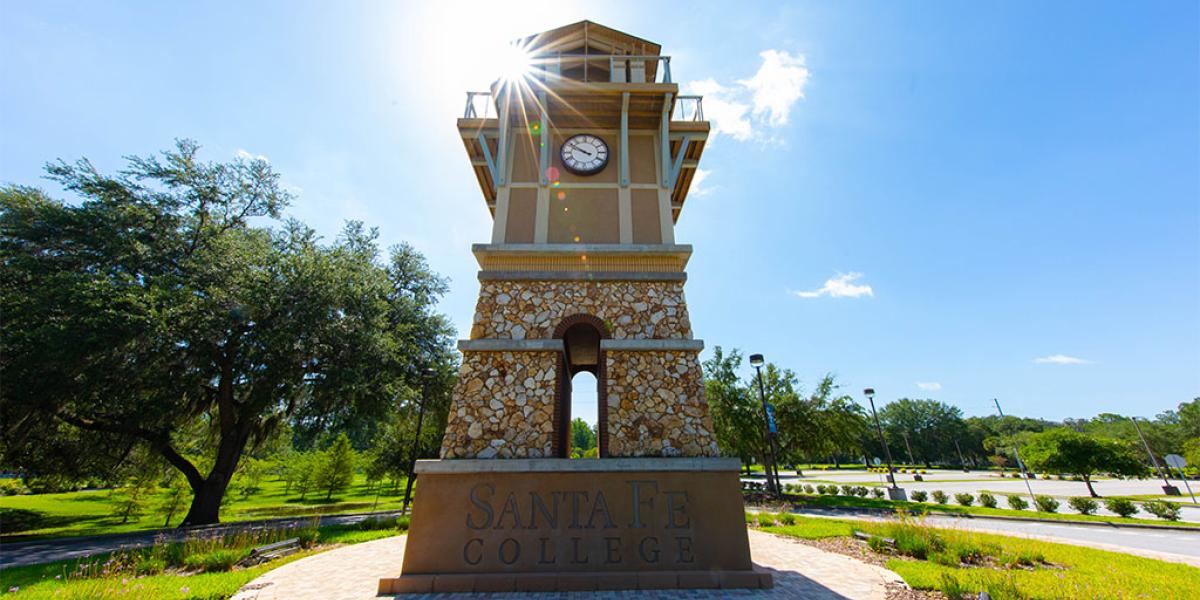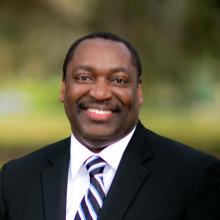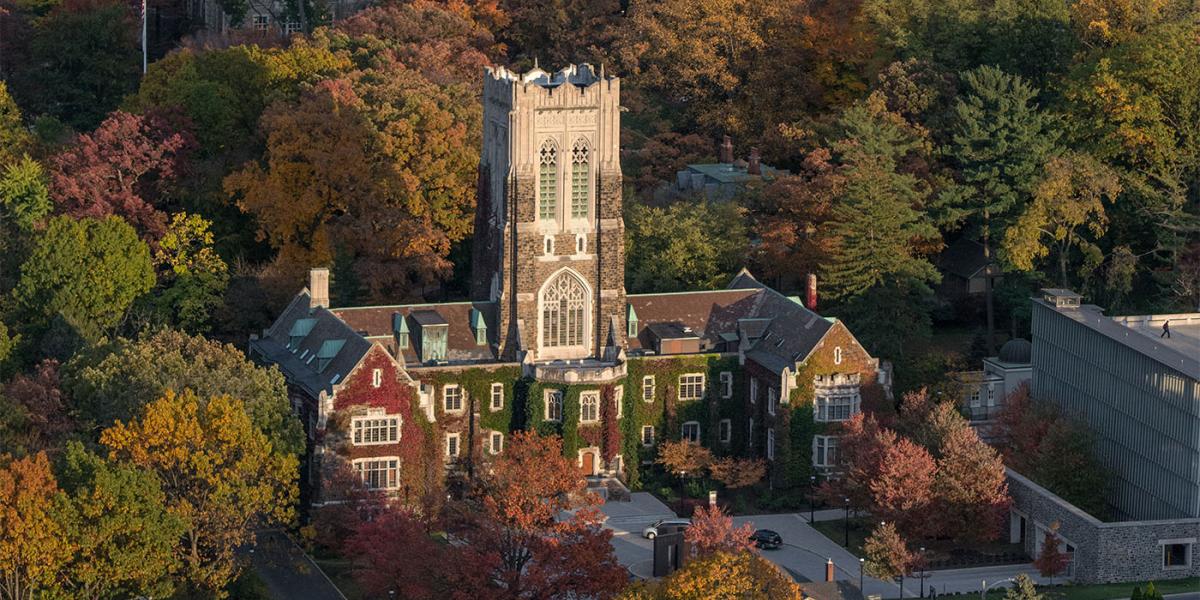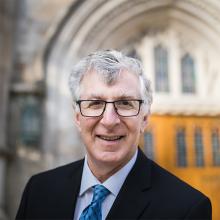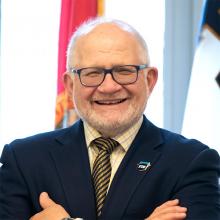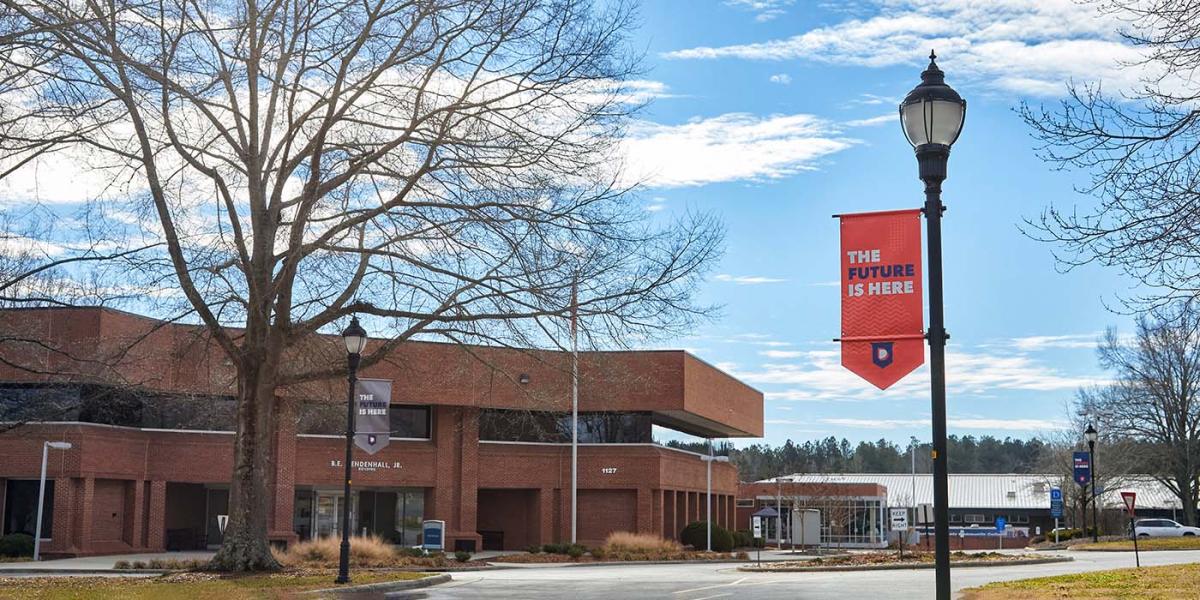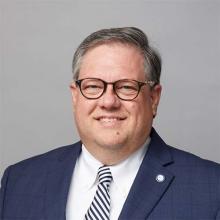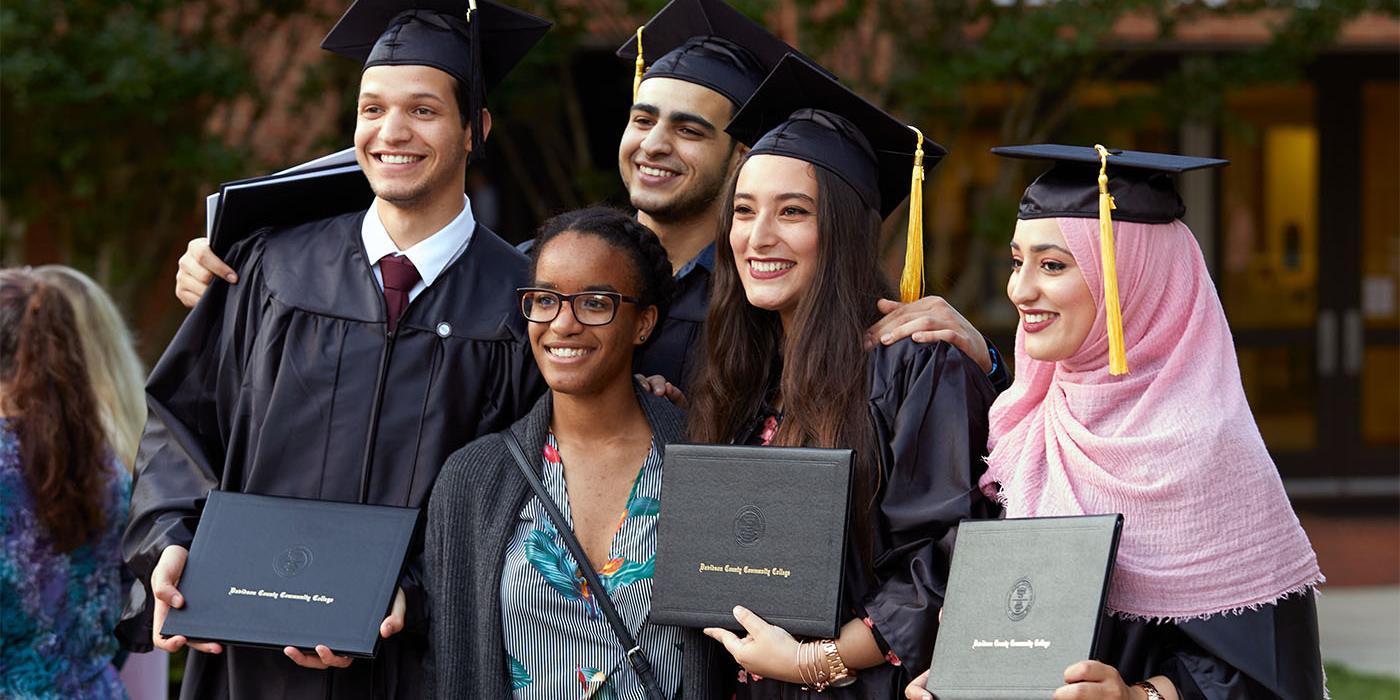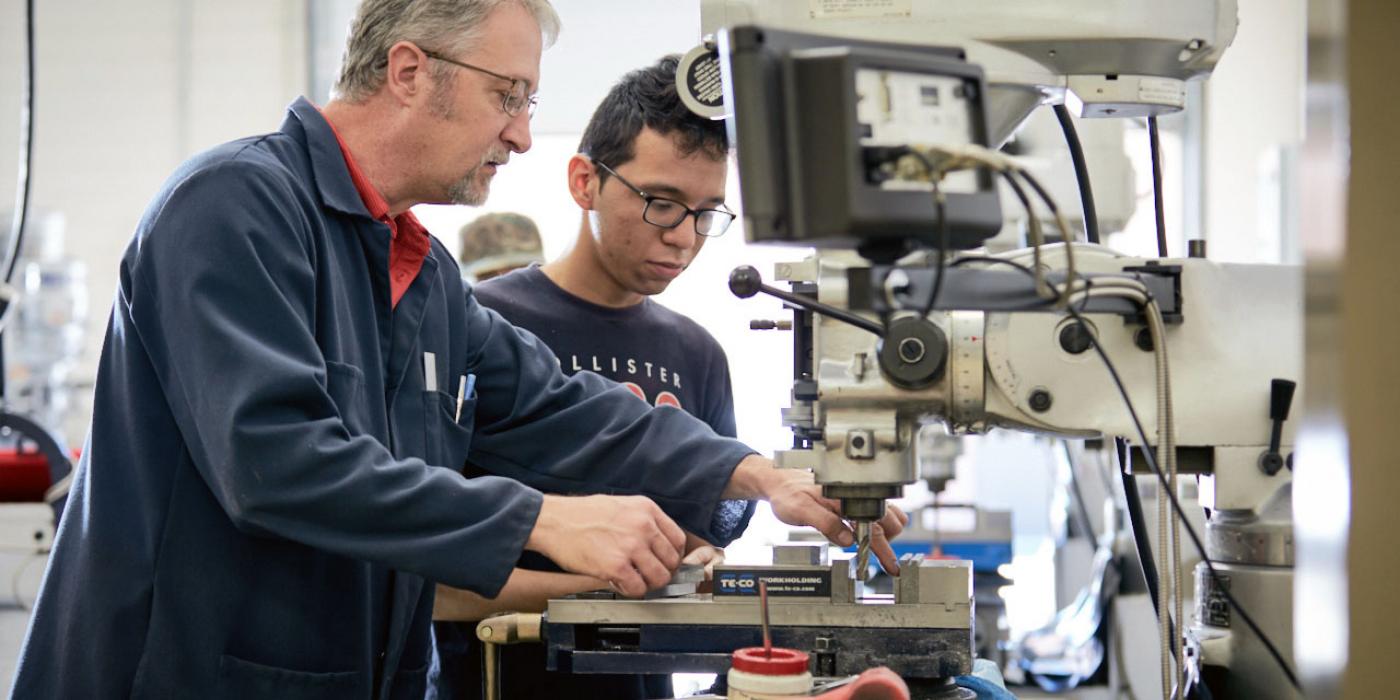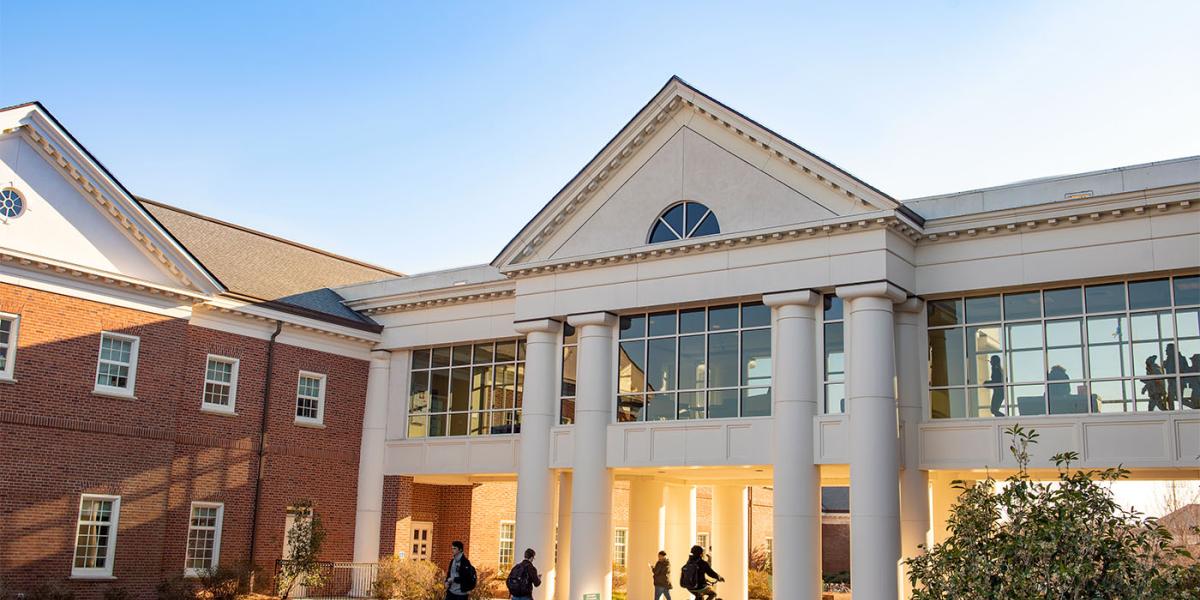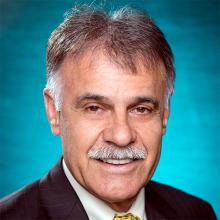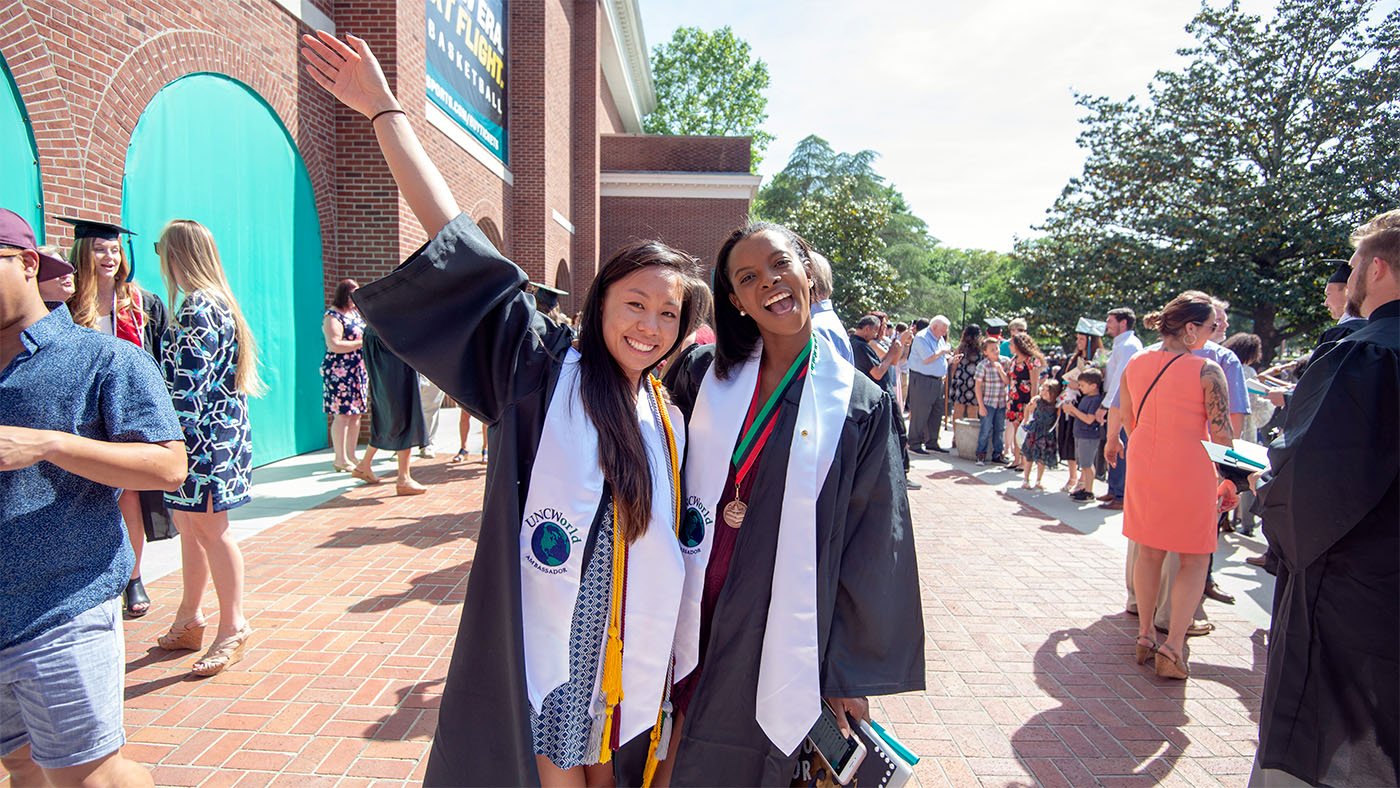Internationalization
Latin America and Caribbean Forum 2022

Four Takeaways from the NAFSA Diversity and Internationalization Summit
NAFSA Diversity and Internationalization Summit
2021 Comprehensive The University of Texas at Austin
Located about 250 miles north of the U.S.-Mexico border, The University of Texas at Austin (UT Austin) is a comprehensive research institution that serves more than 50,000 undergraduate and graduate students. In 2016, the institution’s president expressed a renewed commitment to comprehensive campus internationalization. In 2019, UT Austin developed Texas Global, a centralized unit that coordinates global initiatives across campus. Through efforts to map global engagement and identify regions and partners of strategic interest, UT Austin has developed opportunities for student internships abroad, seed grants for faculty to pursue research with partners abroad, and virtual exchange and other curricular programming for students on the UT Austin campus.
On the first day of his new job as vice president for research at UT Austin in 2016, Dan Jaffe, PhD, met with his counterpart at the National Autonomous University of Mexico (Universidad Nacional Autónoma de México [UNAM]). They discussed which researchers at their respective institutions were collaborating, and Jaffe was unable to pinpoint with whom his faculty were working.
“At that point, we had really not put together the machinery for understanding even what our faculty were up to,” says Jaffe, who served as interim executive vice president and provost until mid-July. “And now, by gathering those threads together and building a strategy around certain people and target countries, we’re able to be much more effective with our [approach to internationalization].”
That same year, senior leadership at UT Austin announced a renewed commitment to global engagement and convened a task force charged with looking at models to strengthen internationalization at the large, highly decentralized research institution with approximately 80 academic departments across 18 schools and colleges. The task force identified the need to bring on a leader dedicated to championing international education.
Sonia Feigenbaum, PhD, senior vice provost for global engagement, was appointed UT Austin’s first chief international officer in 2018. “It became abundantly clear that there had been lots of activity but no mapping and no communication between the various parts of the university,” she says.
Since Feigenbaum came on board, comprehensive campus internationalization at UT Austin has involved taking a strategic and coordinated approach to global engagement. She wanted to bring together the various areas that contribute to the university’s global mission.
The result was the creation of Texas Global, which advances UT Austin’s global mission and includes a centralized division composed of Education Abroad, the English Language Center, Global Engagement and Strategy, Global Programs and Innovation, Global Risk and Safety, International Student and Scholar Services, and Special Initiatives.
“We’ve created programs that respond to the various aspects of internationalization where we’re advancing the mission of the university with research, with partnerships, with student and faculty mobility, and with global engagement on campus that is also informed by our visiting scholars, and a host of events and activities that take place on campus,” Feigenbaum says.
“All of these various units are contributing to the efforts of what is happening throughout the campus,” she adds. “Texas Global is the nucleus, and there are various spokes across the institution that allow us to advance the mission of internationalization.”
Texas Global used a mapping exercise to identify countries where the institution has numerous alumni or a large number of institutional, corporate, and nongovernmental organization (NGO) partnerships, Feigenbaum says. Working with other offices on campus such as the Business Contracts Office, the Office of Sponsored Projects, Texas Admissions, and Enrollment Management and Student Success, Texas Global developed a database that identifies faculty’s research and other international activities. Texas Global also has hired a dedicated director of global alumni relations to enhance engagement in key regions of the world.
Launching Experiential Learning Opportunities Abroad
In 2019, Texas Global created Global Career Launch, an initiative that leverages faculty connections at universities, research centers, companies, and nonprofit organizations around the world. Students can take part in partially funded internships and research abroad under the guidance of a UT professor and an international partner. This initiative advances internationalization, supports student mobility, and encourages faculty collaborations abroad, Feigenbaum says. Thirty students and five faculty members participated in the inaugural internships with partners in Brazil, Denmark, Israel, Mexico, and Thailand.
“Global Career Launch is designed to launch students into experiential learning opportunities that are career focused,” says Heather Thompson, director of education abroad.
Faculty receive seed grant funds, and students are awarded scholarships of up to $4,000 to help offset the cost of the internships, she says. The internship model varies depending on the program. In some cases, faculty travel with students to help them get settled, and then the students work with an in-country supervisor. In other cases, the professor remains abroad with the students the entire time. For summer 2021, Texas Global sent three cohorts of students abroad, and two other cohorts completed their internships virtually.
Kinesiology professor Hirofumi Tanaka, PhD, took students to Bangkok, Thailand, to complete a six-week internship in the exercise physiology laboratory at Chulalongkorn University. The students tested the physical fitness and performance of transgender adults and compared them with cisgender males and females. The internship offered an opportunity to inform policy as international bodies, such as the International Olympic Committee, have not yet issued final guidance on whether or not transgender athletes should be allowed to compete in women’s sporting events, Tanaka says.
Funding Interdisciplinary Projects
As part of UT Austin’s efforts to renew its focus on global engagement, former president Gregory Fenves, PhD, established the International Board of Advisors (IBA) in 2017. The group, composed of individuals representing multiple countries with connections to UT Austin, makes recommendations on how the university can expand its global network and enhance its presence around the world. David Wolcott, PhD, assistant vice provost for global engagement, says that the IBA was part of a much broader strategy to engage alumni in comprehensive internationalization efforts.
One of the board’s initial priorities was to increase experiential learning for UT students. This led to the development of a signature program, the President’s Award for Global Learning. The program provides seed funding for interdisciplinary, credit-bearing projects conducted by up to four students and three faculty members. “It brings together interdisciplinary teams of faculty and students to work on these projects abroad,” Wolcott says. “And it is a very rigorous proposal process where faculty teams must work with international partners to submit proposals that identify a topic that can be addressed in a global context.”
Since 2018, the program has supported 17 projects in 13 countries. The teams have included 48 undergraduate students, 19 graduate students, and 45 faculty members. For summer 2021, programs to Denmark, Jamaica, Jordan, and Mexico were allowed to run after a rigorous risk and safety approval process.
“This award [supports] faculty who go out and help deepen and strengthen our partnerships and find new ways to collaborate and really push the development of inquiry and leadership skills for our students,” says UT Austin President Jay C. Hartzell, PhD.
Tim Mercer, MD, director of the global health program at Dell Medical School, was the lead faculty on a team that received the award in 2018. He took a group of students to Puebla, Mexico, to conduct a community health needs assessment. “It really helped galvanize our partnership with our partners there in Mexico,” he says. “Working together on this project really laid the groundwork for our global health partnership going forward, so it was tremendously catalytic in that sense.”
“I was able to learn a lot of skills that have followed me into the clinic,” says Veronica Remmert, a current medical student who participated in the program as an undergraduate at UT Austin. “The project has greatly impacted the way that I view patient encounters and how I seek to be as a physician.”
Meeting Community Needs Through Service Learning
Another interdisciplinary program is Projects with Underserved Communities (PUC), which the university has run since 2009. The program consists of a three-course sequence that pairs social work and engineering students with NGOs abroad. In the fall, the students work with their NGO partner on a community needs assessment and examine the feasibility of different projects. They also fundraise to cover the cost of implementation. Over the course of the year, the teams design their projects in collaboration with the community and the NGO, says Kirsten Hagen, MA, program coordinator. The student teams also present their projects to a service learning advisory board composed of representatives from UT Austin and industry leaders in fields such as engineering, social work, international education, and regional planning.
“There is a really strong focus on community-based development and building those partnerships with communities,” Hagen says. “Both the community and the students are contributing, and they’re both benefiting from the project.”
Nina Lobo, a civil engineering major who graduated from UT Austin in 2017, worked on a project constructing a learning and resource center for a community in south India. It allowed different religious groups in the community to come together in a neutral space to take classes, access the internet, and learn English. “We wanted them to have a kind of a space where they could get together on a more level playing field,” she says.
Since then, Lobo has helped create a PUC alumni group that advises current students on their projects. She says that participating in the program was a turning point in her engineering studies at UT Austin. “I think the whole time that I was at UT, I had been searching for a way to connect my degree back to social impact,” says Lobo, who now works at a nonprofit focused on equitable access to solar power. “And the PUC program was one of the first times that I found an ability to do that and really take ownership of a project from start to finish that really affected and reached people.”
Planting The Seeds For Sustainable Research
Another effort to encourage faculty to conduct global research is a competitive $10,000 seed grant program. “Funded by Texas Global, the program was initiated in November 2020 and provides financial support to faculty in order to develop and strengthen new or existing partnerships with global universities or organizations,” Wolcott says.
The first round of funding went to nine proposals involving 11 UT Austin faculty who are collaborating with 10 partners in Australia, Chile, Egypt, France, Israel, Pakistan, Portugal, South Africa, and Spain. Topics include urban housing in Egypt (in collaboration with the American University of Cairo) and the future of work in the age of the pandemic (with partners at the University of Cape Town). The second round of funding went to eight proposals involving 11 UT Austin faculty who are collaborating with nine partners in Ecuador, England, Germany, Mexico, Portugal, Scotland, and South Korea. Topics include next-generation tropical ecology (in collaboration with Universidad San Francisco de Quito) and developing smart energy neighborhoods (with partners at Seoul National University).
Wolcott says that while the goal is to facilitate peer-to peer collaboration, UT Austin will also look at possible institutional partnerships if there are multiple faculty members working together.
Speech pathology professor Stephanie Grasso, PhD, received one of the seed grants for her research on bilingual individuals who present with primary progressive aphasia, a form of dementia that affects speech and language. “There’s a growing body of evidence showing that speech language intervention coming from the field of speech language pathology can actually benefit specific communication skills and even slow the progression of the loss of communication abilities,” she says.
The challenge is that the majority of research in this area has focused on monolingual, English-speaking participants. “Very little is known about how bilingual speakers respond to these types of tailored intervention approaches,” Grasso says. Grasso is collaborating with researchers at the Sant Pau Biomedical Research Institute, a research consortium under the leadership of Sant Pau Hospital and affiliated with the Autonomous University of Barcelona in Spain. The team is examining the effects of a tailored speech and language teletherapy program that is being administered to bilingual individuals who speak Spanish and Catalan.
The seed grant funds the work of a staff member at Sant Pau who is administering the therapy in Catalan, Grasso says. Wolcott says that one of the goals of the seed grant funding is to help faculty collect preliminary data that will allow them to apply for larger grants.
Promoting Entrepreneurship Around The World
Texas Global oversees the Global Innovation Lab (GIL), which is focused on entrepreneurship and helping international companies launch products across the globe. “We train entrepreneurs on how to effectively assess target markets, build their company infrastructure, and plan commercialization strategies for global market entry. We also assist them with access to prospective customers, partners, and sources of capital,” says Glenn Robinson, MA, GIL assistant director.
The team primarily works with entrepreneurs who are testing their prototypes. In addition, Robinson and his colleagues have helped establish incubator networks in India and other countries and technology transfer processes that help entrepreneurs deal with issues such as intellectual property rights.
While their work has historically dealt with technology, they have started focusing more on social enterprise innovations in countries like Bhutan, Chile, and Colombia. As a result, GIL has launched an initiative focused on women entrepreneurs in emerging markets.
Robinson says that GIL builds awareness of UT Austin’s academic programs in order to recruit talented international students to the institution. In addition, GIL has taken a group of female students from UT Austin to meet their counterparts at the Indian Institutes of Technology to share their experiences as future entrepreneurs.
Engaging Alumni Through Texas Global Dialogues
Prior to the pandemic, Texas Global launched several initiatives to engage international alumni, including hosting events abroad. But after March 2020, the unit had to rethink how it approached international alumni programming. “Rather than being able to bring live events to alumni, we switched to a virtual mode,” says Thuy Nguyen, MA, global strategies officer.
One of the initiatives Texas Global launched in partnership with Texas Exes, UT Austin’s nonprofit alumni association, was Texas Global Dialogues, which brought together panels of faculty and alumni to discuss the latest trends in certain fields and regions. The first event, held in August 2020, focused on journalism in Latin America. Subsequent dialogues revolved around sustainable energy and artificial intelligence.
Lisa Anaya, MA, global strategies officer, says that virtual programming has helped expand UT Austin’s international alumni outreach. “We’re making all of these inroads with alumni that we would have never been able to see or speak to before,” she says. In the future, the institution can use those connections to invite alumni to regional events.
Creating A Sustained Physical Presence Around The World
President Hartzell says that an expanded physical presence in key locations is the next step in UT’s internationalization efforts.
UT Austin’s ongoing engagement with Mexico has led to the establishment of a physical presence there. In 2017, the institution opened its first Global Gateway office at UNAM in Mexico City, which will serve as a focal point for UT Austin’s activities in Mexico. While some efforts were delayed due to the pandemic, Texas Global is currently recruiting to fill the director position.
Jaffe says that the office is the first of several Global Gateways that UT Austin will open over the next few years—a direct result of the mapping and data collection exercises that Texas Global recently completed.
“Opening these Global Gateways within the major regions of the world is going to be really important to us so that our alumni, our faculty partners, and our corporate partners in those regions feel that we are a sustained presence,” Wolcott says.
2021 Comprehensive Santa Fe College
By increasing its study abroad offerings, internationalizing the curriculum, and hosting international students, Santa Fe College has brought the world to the 20,000 students studying on its main campus and six education centers near Gainesville, Florida. Participation in a number of federally funded programs has helped the college build robust partnerships with institutions abroad, leading to student and faculty mobility, virtual exchanges, and institutional collaboration. The community college, which offers both associate’s and bachelor’s degree programs, has also developed an international studies certificate that allows students to showcase their global engagement.
Building On Decades of Global Engagement
Santa Fe College began its internationalization efforts in the early 2000s under the leadership of Jackson Sasser, PhD, its former president. “When we first started this journey, those of us working in academic affairs thought of internationalization as internationalizing the curriculum and study abroad—nothing else,” says Vilma Fuentes, PhD, assistant vice president for academic affairs and senior international officer. Over time, there was a gradual understanding that “internationalization must be seen as a multifaceted process.”
As a department chair in 2002, Ed Bonahue, PhD, who served as provost from 2009 to 2021 and is now president of Suffolk County Community College in New York, was involved in creating Santa Fe’s first plan for international education. The plan had four pillars: (1) boosting international student enrollment; (2) creating globally focused and multicultural programming on campus; (3) internationalizing the curriculum and developing study abroad; and (4) internationalizing workforce and economic development efforts. The plan paved the way for a series of external grants and an internal structure that helped the college become an international education leader.
“Internationalization goes directly to our college mission,” Bonahue says. “When I think about what that mission means, it’s always connected to the idea that we are educating students and educating our community—that we’re part of an interconnected world.”
In 2004, Bonahue also helped author the college’s first Title VI grant from the U.S. Department of Education that provided funding for international studies and world languages. The college has subsequently received two more grants and expanded its foreign language offerings to include American Sign Language, Chinese, French, and Spanish, as well as Italian, Portuguese, and Swahili periodically.
In addition to a variety of internationally focused campus programming through Fulbright and other initiatives, the college runs six faculty-led study abroad programs per year and hosts approximately 350 international students. Early internationalization focused more on liberal arts and sciences, while more recent efforts have focused on internationalizing the career and technical fields.
In 2018, the college brought together the International Education Office, International Student Services, International Student Support and Advising, and English for Academic Purposes into one physical location, the International Center. Santa Fe invested more than $700,000 to renovate an existing building.
“We wanted to create a physical space where international students and domestic students interested in the world could interact and mingle, synergies could be created, and opportunities could be developed that maybe we weren’t otherwise seeing,” Fuentes says.
Santa Fe President Paul Broadie II, PhD, joined the college in February 2020. “One of the things that truly attracted me to Santa Fe College was its focus on internationalization of the curriculum and how expansive it was,” he says. “Other institutions, they may do study abroad, and you will have a few faculty members that embrace that global curriculum, but this was widespread across our entire institution.”
Growing Expertise Through the Community College Administrator Program
Santa Fe has co-administered U.S. Department of State-funded Community College Administrator Programs (CCAP) since 2014. Together with Florida State University, a 2017 Simon Award recipient, Santa Fe has hosted 10 CCAP cohorts from 10 different countries: Brazil, Colombia, Ecuador, Egypt, India, Indonesia, Pakistan, Peru, South Africa, and Ukraine.
Visiting administrators spend 2 weeks of a six-week program at Santa Fe seeing the daily operations of a U.S. community college.
“We’re very happy to be involved with that training program because it brings a lot of know-how that’s unique to [U.S.] higher education to the rest of the world, to other kinds of tertiary educational institutions,” Bonahue says. “The more that we take part in that program, the more that we realize that the transparent governance of [U.S.] community colleges, the way that we collaborate with our workforce community, these are things that we should treasure because they don’t happen all over the world.”
The primary focus of the program is for the visiting administrators to interact with their counterparts at Santa Fe and learn about best practices for community college management. Approximately 50 Santa Fe administrators interact with each visiting cohort from abroad. Conversations quickly shift from practical knowledge about how to run a department to deeper cultural exchange, Fuentes says.
She added that the institution is intentional about having the cohort interact with students, meet with student government leaders, and visit classrooms. The visiting administrators also give public presentations for students.
For example, a group of higher education officials from Pakistan wanted to counter U.S. misconceptions about their country, so they developed a presentation on the hidden beauties of Pakistan that focused on food, music, and culture. Another participant talked about how the educational system in Eastern Ukraine had been disrupted by war with Russia. “It is one thing to read about what is happening in the news, but hearing directly from people who had their university bombed makes it very real,” Fuentes says.
“The Community College Administrator Program has not only impacted administrators, but it’s also directly impacted students, faculty, and staff,” she adds.
History professor David Price, PhD, has interacted with visiting administrators in his role as president of the faculty senate. He says that participation in the CCAP and Fulbright programs provides excellent opportunities for Santa Fe staff and faculty to learn about other educational systems and interact with colleagues from abroad. “These have been great professional development opportunities for our faculty, given our high teaching load and limited resources provided by the state compared to research universities,” he says.
The CCAP program shifted to virtual operations and suspended in-person travel from April 2020 through July 2021 due to COVID-19. Santa Fe plans to receive delegations from the Caribbean, Egypt, the Philippines, and an additional country in upcoming years.
Fostering Partnerships Abroad Through Federal Programs
Participation in Fulbright, the CCAP, and other federally funded programs has helped spur comprehensive campus internationalization at the college, Fuentes says. All of the international partnerships that Santa Fe College has started began as a result these programs.
In the wake of September 11, 2001, Santa Fe hosted a Fulbright scholar-in-residence through the U.S. State Department’s Fulbright Specialist Program: Direct Access to the Muslim World. Since then, the college has hosted four more Fulbright scholars-in-residence.
Participation in the Fulbright Scholar-in-Residence Program has led to the creation of faculty and students exchanges with partners in countries such as Brazil, China, Egypt, Indonesia, and Ukraine. Santa Fe has signed cooperation agreements with several visiting scholars’ home institutions that led to further collaboration, Fuentes says. For example, the college developed its first study abroad program to China after hosting a scholar from Beijing Union University in 2006–07.
“All of those [collaborations] came about as an extension of the Fulbright Scholar-in-Residence Program,” Bonahue says. “Often, we’ve worked on shared interests that relate to, for example, a sector of industry. That program has really opened the door not only for students but also to institutional collaboration.”
Another example of partnerships to come out of participation in federal grant programs is the online Certificate for Accessible and Inclusive Practices (CAIP) that Santa Fe professionals created in collaboration with Brazilian counterparts from Universidade Estadual Paulista “Júlio de Mesquita Filho” (UNESP). CAIP is a self-paced online course designed to promote an inclusive pedagogy through the application of universal design principles. Dozens of Santa Fe faculty members have participated in the online training and earned a certificate of completion.
Promoting Internationalization Through Virtual Programming
Another way that Santa Fe is bringing global perspectives to its campus is through the development of virtual programs. Fuentes says the college worked with partners to come up with ways that they could engage students virtually during the pandemic—and many of these innovations will likely persist even when travel fully resumes.
The college pivoted to offer online its International Lecture Series, which began in 2010. Speakers include visiting scholars, Fulbright scholars, and Santa Fe faculty. In 2020–21, the college offered 14 virtual events. “The virtual International Lecture Series has allowed us to make things more accessible to students,” Fuentes says.
Santa Fe also organized a series of four “virtual world tours” in 2020 in collaboration with partner universities. The events connected nearly 400 Santa Fe faculty and students with peers abroad in Bolivia, Brazil, and Ukraine. The tours taught participants about food, music, and culture, but organizers recognized they needed to create opportunities for more robust cultural exchange, says Jessica Surana, LSM, international education coordinator.
One way to do that was through virtual exchanges that allow students to interact with their peers abroad. A few professors had already been doing virtual exchanges for several years, but the pandemic helped spur wider participation across the college. “There have been sprinklings of informally organized virtual exchange for a long time here at Santa Fe, but when the pandemic hit, we really focused our energies on developing programs that students can still participate in,” Surana says. Since 2010, more than 800 Santa Fe students have participated in virtual exchanges.
Fuentes says that the college will develop more comprehensive trainings to teach faculty about how to incorporate virtual activities into their classrooms, starting in fall 2021.
Surana helped arrange a student virtual exchange with the college’s partners in Egypt and Ukraine that paired students to discuss current events and culture. Her unit worked with EDU Africa, a third-party provider based in Africa, to develop exchanges focused on global legacies of racial injustice and street art as a voice for social transformation in South Africa. The college also implemented virtual exchanges with Iraq and Jordan through a program funded by the U.S. Department of State through the Stevens Initiative and implemented by IREX.
“What we’ve realized is that we’re able to access and provide opportunities for so many more students than we have in the past with just offering study abroad and in-person events,” Surana says.
Professor Michelle Freas, MA, has included virtual exchanges in her American Sign Language (ASL) and deaf culture classes since 2014. She began doing virtual exchanges with a school for deaf students in the West Bank in Palestine. In 2017, she also worked with advanced ASL students and Palestinian students to create an online video dictionary that translates Arabic/ Palestinian Sign Language into ASL/English.
Freas says that the virtual exchange with Palestine was her first international experience. It was challenging at first because the students in Palestine did not know English and the U.S. students did not know Arabic. To overcome the language barrier, they would draw pictures and use props. “What’s interesting with sign language is that it’s very easy to gesture and get your point across,” she says.
Freas has also done virtual exchanges with partners in Sweden and Ukraine.
“Not many colleges with American Sign Language programs have international experiences,” Freas says. “I’ve been very fortunate to be able to have experiences with three different countries and involve my students and have the deaf culture course that’s offered at Santa Fe become part of our international coursework.”
Freas says that virtual exchange has been a significant source of growth for her as an educator. “It keeps me motivated to learn more and to find ways to reach the students and the deaf community in those countries, but [it] also gives my students different outlets to be involved in their college experience.”
Fuentes says that virtual exchanges are a way to provide international opportunities to students who might not be able to study abroad. “Even though we’ve been able to provide funding and scholarships, study abroad is often inaccessible to [community college] students,” Fuentes says. “We realized there might be other ways that we can expose students to the world without actually ever having them leave the country. That prompted us to begin exploring virtual student exchanges.”
Internationalizing The Curriculum Through Grants
In addition to virtual exchanges, Santa Fe has created opportunities for its students to learn about the world by incorporating international perspectives in the classroom. Since 2016, the college has provided internationalizing the curriculum grants to 19 faculty to develop new or modify existing courses with a global perspective.
Several faculty members have also received curriculum enhancement grants through the University of Florida (UF), which received NAFSA’s Simon Award for Comprehensive Internationalization in 2018. The result has been more than 50 general education and elective courses with significant international content. Many of these classes meet the college’s multicultural and global awareness requirement for all students pursuing associate’s and bachelor’s degrees.
Price has received several grants from UF to enhance his courses. At the time when the United States was implementing the Affordable Care Act, he received a grant from the UF Warrington College of Business to create a module on comparative health care policy for students to learn about how insurance works in different countries.
More recently, he was awarded a grant from the UF Center for European Studies to travel to the United Kingdom to do research in the British National Archives on the country’s first attempts to enter the Europe Union in the 1950s and 1960s. He was able to connect it to contemporary discussions about Brexit.
“Without the college putting the focus on international education, we wouldn’t be able to get these opportunities from other entities to really enhance our course offerings, keep them fresh, make them more vibrant, and tie them to things that are going on in the real world so that students see more of a connection,” Price says.
Showcasing International Experience
Santa Fe has brought together its global curricular and co-curricular initiatives through the International Studies Certificate, which it launched in fall 2013. In addition to completing 12 credit hours of internationally focused courses, recipients are required to participate in international activities, such as study abroad or events on campus. In addition, they must compose an e-portfolio showcasing their global engagement. Many Santa Fe students transfer to the nearby UF, which applies some of the work done for the International Studies Certificate toward its International Scholars Program.
“The International Studies Certificate program is a way for students to codify their international experiences,” Surana says.
Building on the work that has already been done, President Broadie says the next step in internationalization at Santa Fe is to link the college’s global engagement with his goal of creating a college-going culture in the two counties in Santa Fe’s service district. That includes creating more scholarships for students to participate in international activities. “We want to get as many students in the doors as possible to create that college-going culture, and then expose them to our focus on internationalization,” Broadie says.
In order to accomplish this, the college is creating 22 new scholarships to help underrepresented students with financial need participate in study abroad. These will become available beginning in 2022.
2021 Comprehensive Lehigh University
Founded in 1865 by railroad magnate and industrialist Asa Packer, Lehigh University has extended its reach from the Lehigh Valley in eastern Pennsylvania to locations around the globe over the past 150 years. Lehigh is a private research university located in Bethlehem, Pennsylvania, a city of 75,000 residents. The university’s focus on interdisciplinary, experiential learning and collaboration across campus has helped it develop an approach to internationalization that cuts across the institution. Internships abroad, research opportunities, and partnerships with organizations such as the United Nations give Lehigh’s 7,000 students access to high-impact global experiences both in and out of the classroom.
Even though Zemichael Gebeyehu started college 7,000 miles away from his classmates in the middle of the global pandemic, he still felt welcomed into the campus community at Lehigh University. Gebeyehu, who is from Ethiopia, was one of more than 100 first-year international students who started their college careers at Lehigh from abroad. “I studied in the fall remotely because of COVID,” he says. “And the embassies were closed back in my home country, so I was not able to get a visa in time to come to Lehigh in person.”
Gebeyehu chose Lehigh because he was interested in studying mechanical engineering with a focus on aerospace engineering. “I was looking for an experiential, hands-on engineering program,” he says.
In fall 2020, Gebeyehu had a combination of synchronous and asynchronous classes and was able to schedule classes with meeting times in the early evening in Ethiopia. A summer class, the Virtual College Success Academy, prepared him for his first semester by teaching him about Lehigh’s history and campus culture and the learning management systems he would use. “I already knew what Lehigh is [when I arrived in January 2021], what extracurricular activities were available on campus, research opportunities, summer experiences, everything,” he says.
The Virtual College Success Academy is an example of how Lehigh adapted its programming to accommodate both international and domestic students during the coronavirus pandemic. Other international students in countries such as China started their freshman years studying in person at one of Lehigh’s partner universities abroad through the Lehigh in Residence program, while Lehigh leveraged other partnerships to create virtual international internships through its Iacocca International Internship Program.
“We have a history of having our faculty, our Office of International Affairs [OIA], our students, and alumni have relationships that span across the globe,” says Provost Nathan Urban, PhD. “And those relationships were not, largely speaking, disrupted by the pandemic. I think that one of the things that’s been sort of remarkable about the pandemic is the degree to which people have been willing and able to connect with each other and to engage with each other through technology.”
Lehigh’s response to the pandemic, utilizing existing partnerships both abroad and across campus in new ways, is in keeping with its larger approach to internationalization. “Our international goals are tied to both the history and culture of the institution,” says Cheryl Matherly, EdD, vice president and vice provost for international affairs. “We talk about it in terms of this kind of entrepreneurial mindset aimed at preparing graduates for real-world problem-solving.”
Growing a Global Presence
Lehigh has steadily grown its global presence since its first international students came from China in 1879. The university now hosts nearly 1,000 international students like Gebeyehu from around the world. Roughly 40 percent of its undergraduates participate in study, research, or internships abroad, and more than 60 students have received major international scholarships such as the Fulbright, Marshall, and Schwarzman since 2016, when the Office of Fellowship Advising was established as part of OIA.
The establishment of the Iacocca Institute in 1988 marked a turning point for Lehigh’s global engagement, Matherly says. Automobile executive and Lehigh alum Lee Iacocca, who worked for both Ford and Chrysler, partnered with Lehigh to found the institute with the goal of preparing students to be leaders in a global economy.
Iacocca realized that students need to be globally competent and aware in order to be leaders in a global economy, says Kira Mendez, MBA, director of the Iacocca Institute. That starting point evolved into a focus on cross-disciplinary and cross-border collaboration. In 1997, the Iacocca Institute launched its flagship program, the Global Village, which brings together approximately 75 young professionals and university students from around the world to Bethlehem for 5 weeks in the summer. During 2020 and 2021, the program was adapted to a yearlong virtual format.
Participants from different countries and backgrounds work together on consulting teams for external organizations. Between four and seven full scholarships are also reserved for Lehigh students, with funding from the Iacocca Institute, the Office of Student Access and Success, and individual donors. Other participants are recruited through a variety of global partner institutions and alumni referrals. The Global Village also invites former participants to serve as mentors.
Lehigh recently celebrated the 25th anniversary of the Global Village, which now boasts 2,250 alumni from 141 countries. The program has served as the springboard for other initiatives, such as the Iacocca International Internship program, which started in 2012 with a $10 million endowment from Iacocca. In 2017, the Iacocca Institute was selected to host a group of Mandela Washington Fellows for Young African Leaders based on its expertise running the Global Village program.
“We have developed a lot of new programming through our institute. And that often becomes either the inspiration or the launching point for other things that happen throughout the university,” Mendez says.
Centralizing International Affairs
Matherly says that the next phase of internationalization at Lehigh started in the mid-2000s when the Board of Trustees charged senior leadership to develop a global strategy for the university. As a result, global engagement became an institutional priority, and several programs across the university were brought together under a single vice president for international affairs who reported directly to the president.
Journalism and global studies professor Jack Lule, PhD, who co-chaired Lehigh’s internationalization strategic planning process, says that one of the reasons internationalization has been so successful at Lehigh is that “faculty were doing international things before the university caught up with us.”
“[Internationalization] is not something that’s imposed from the top down. It’s something that bubbled up because of the scholarly interest and teaching interest of its faculty,” Lule says.
All international programming was centralized under OIA, which now comprises 10 offices and programs, including education abroad, international student and scholar services, partnerships, English language and academic support, fellowship advising, and global leadership education. The OIA portfolio also includes Lehigh’s United Nations Partnership and the Iacocca Institute.
Adopting a Global Strategy
Another big step for internationalization at Lehigh occurred in 2016, when Matherly joined the institution as senior international officer. The university soon joined the American Council on Education’s Internationalization Laboratory. The result was Global Lehigh, a 2018 internationalization strategy that was closely aligned to the Path to Prominence plan launched in 2016 by John D. Simon, PhD, who stepped down from his role as president at the end of June 2021. The institutional plan includes increasing diversity of undergraduate and graduate enrollment, hiring new faculty, and launching a new College of Health, which began offering classes in population health in fall 2020.
“Global Lehigh is completely tied to the university’s plans around recruiting, new program development, and campus expansion,” Matherly says. “The work we did with developing this Global Lehigh plan was fully embedded in the university’s larger strategy.”
Global Lehigh has five priorities: (1) leverage excellent international programs to ensure Lehigh attracts the world’s best students; (2) invest in programs that support Lehigh’s vision statement, which challenges the institution to prepare graduates who “engage with the world and lead lives of meaning”; (3) strategically partner with institutions and industry to advance innovations in teaching, research, and service; (4) expand resources, services, and infrastructure to support Lehigh’s goals to recruit and retain world-class faculty and staff; and (5) develop multifaceted engagement in regions that align with the university’s mission, vision, and goals.
Lule says that the committee that drafted the Global Lehigh plan had broad outreach among faculty and the staff, which helped contribute to buy-in across campus.
Simon says that when the Global Lehigh plan was created, he wanted to make sure that it cut across everything the institution was doing rather than serve as its own pillar. “One of the things I wanted to do here was [ensure] that being global should be foundational,” he says. “There shouldn’t be any program at the institution, any activity at the institution, that isn’t also asking the question, ‘How can we connect globally?’ I was trying to take it from being its own pillar with its own strategy to being embedded in everything that we do.”
Internationalization at Lehigh has been much more than “a list of activities that come out of the Office of International Affairs,” Simon says. “It actually has to be a culture and an intentional strategy to expose your entire community, and especially the student body, to what it means to be globally aware.”
Leveraging Partnerships Across Campus And The World
Matherly says that partnerships, both on and off campus, have been key components of Lehigh’s approach to internationalization. The university has a portfolio of signature experiential learning programs that include its UN Partnership; the Global Entrepreneurial Fellowship through Lehigh@NasdaqCenter; and the Mountaintop Summer Experience, which includes the Global Social Impact Fellowship, an interdisciplinary program that brings together undergraduate and graduate students to do projects focused on addressing sustainable development challenges in low-income countries.
In 2004, Lehigh became the sixth university in the world to gain nongovernmental organization status (NGO) with the United Nations. (There are now around 20 institutions that have NGO designation.) Each year, more than 1,500 Lehigh faculty, staff, and students attend conferences, high-level briefings, and private meetings with ambassadors and other UN representatives in New York City and on campus. During the pandemic, the partnership had an even greater reach as more members of the campus community were able to participate in events and meetings virtually.
Bill Hunter, EdD, directs the Office of Fellowship Advising and UN Programs. “Lehigh is in a rare group of universities that have this direct access to the United Nations,” he says. “Every university in the country teaches about the UN, but [for Lehigh], the United Nations has become our classroom.”
A group of Lehigh students were even invited to a private meeting with women’s education advocate and Nobel Peace Prize recipient Malala Yousafzai, as well as the Pakistani ambassador to the United States. “It is a moment I will never ever forget,” Hunter says. “And I’m sure the students won’t either.”
Before the pandemic, Hunter’s team took groups of students, faculty, and staff to New York City for various UN briefings, conferences, and meetings. “We’re at the point now where we can guarantee every person within the Lehigh community, whether they’re faculty, staff, or students, can have a significant, tangible, meaningful interaction with the United Nations during their time at Lehigh,” he says.
Hunter often works with faculty to align their course curricula and syllabi with UN objectives, and many faculty design courses around the Sustainable Development Goals (SDGs). For example, professors in the College of Business developed an MBA course in which students identify best practices for how companies can invest resources in support of the SDGs. The students ultimately produced a series of case studies for the president of the UN General Assembly.
Emma Santini, a senior studying international relations and economics, interned with the UN Partnership program the summer after her first year of college. She is now a UN Youth Representative for Caring and Living as Neighbors, an Australian NGO that works on behalf of children affected by chronic illnesses.
“It almost gives you a little bit of a sense of imposter syndrome [when] you’re sitting in a big UN conference hall with global leaders,” Santini says. “That’s just something really unique to Lehigh, as [the institution] puts students in super-experiential opportunities.”
Increasing Access To Experiential Learning Abroad
Beyond the high-impact practices Lehigh offers on campus and with partners in the United States, more than 40 percent of its undergraduates participate in study, research, or internships abroad. For instance, the Global Citizenship Program is an international certificate program with a cohort model that includes six academic courses, two international experiences, and project work.
Santini, who participated in the Global Citizenship Program, says, “It’s essentially a three-year program where you learn about what global citizenship is, how to practice it in the world, and what sort of local and global components interconnect.”
William Peracchio, MS, who completed his undergraduate degree at Lehigh in computer science and business, also participated in the Global Citizenship Program. He says that because the trip abroad is fully funded— originally through a Mellon Foundation grant and then by the university to maintain the program—students have to apply and be admitted before they know where they are going: “You get accepted, and then maybe a week or two later, you get a notification saying, ‘By the way, you’re going to country X in the winter.’”
OIA has partnered with the Office of Diversity, Inclusion, and Equity (ODIE) to make overseas experiences more accessible to first-generation students, low-income students, and other underrepresented student populations. One program that has come out of this partnership is Passport to Success.
In 2017, Lehigh launched the Passport to Success program after a donor gave money to cover the cost of passports for students. “We began to think about how we could leverage that gift to be about more than just about the passport itself, but also developing an international global experience,” says Donald Outing, PhD, vice president of equity and community.
Katie Radande, MEd, director of study abroad, says that while the first iteration of the program focused exclusively on study abroad, it has since expanded to include other high-impact experiences, such as a fully funded trip to Montreal, Canada, for students to use their new passports. The program has monthly lunch meetings to introduce students to global experiences, explain the value of such programs, and help students with logistics, such as filling out passport applications. The monthly programming is funded by the ODIE, and alumni donations cover the costs of passports and travel scholarships. The application process for travel scholarships is similar to the one for the Gilman Scholarship program so that students can practice applying for a competitive scholarship and working with fellowship advisers.
Around 75 to 100 students participate each year, with a total of 330 participants over the past 4 years. One participant, Amaya Apolinario, a junior English and Japanese major, says, “I joined Passport for Success, and they teach you about all the different opportunities Lehigh has and kind of hold your hand, guiding you through the different processes.”
Radande says OIA would not have been able to do the same kind of targeted outreach without its partnerships with ODIE because the latter already has working relationships built on trust with the students.
Expanding Lehigh’s Global Reach
In fall 2020, Lehigh opened its new College of Health, a goal that was outlined in former President Simon’s Path to Prominence plan. It is the university’s first new college in 50 years and offers undergraduate, graduate, and executive degrees in population health, with the first group of undergraduates slated to graduate in 2024.
In fall 2021, the College of Health will also offer a bachelor of arts in community and global health, with a focus on the determinants of health, qualitative and quantitative research methods, and cultural diversity. In January 2022, the college will also launch graduate certificates in global health and population health, which will be applicable toward the full master’s programs.
The new College of Health is another example of how internationalization is embedded across the campus. Beth Dolan, PhD, interim dean, says that OIA has been involved from the very beginning in the planning for the college, with a particular focus on creating experiential learning opportunities for health students. “We want our students who are doing that global health work to have experiences out in the broader world, and OIA has been absolutely instrumental in helping us plan and execute those opportunities,” Dolan says. The college is now hiring for a new faculty position to focus on developing international learning experiences and engagement with the United Nations in cooperation with OIA
2021 Comprehensive Florida International University
Founded in 1972, Florida International University (FIU) is Miami’s first and only four-year public research university. A designated Hispanic-serving institution, FIU currently serves more than 58,000 undergraduate and graduate students, including 4,000 international students and more than 37,000 Hispanic students (66 percent of the student body). The university promotes global learning throughout the curriculum for all undergraduates, international research opportunities, and strong partnerships abroad. Building on the strategic efforts to internationalize over the past decade, the new Global Strategy 2025 will also help the university leverage its existing relationships around the world.
Ana Rojas, MS, never imagined she would become an expert on invasive species—particularly when those invaders are 3,000-pound mammals with an affinity for the water. When she was a graduate research assistant at FIU, Rojas traveled to the Magdalena basin in central Colombia to study the social and ecological impacts of hippos introduced by narcotrafficker Pablo Escobar.
“We call it ‘hippo heaven,’” says Rojas, who now works as a research development officer at FIU. “They have no natural predators, and they’re multiplying at an unprecedented rate. And the people [of the region] actually love them, even though they could become a really bad threat to the ecology of this system.”
Rojas started at FIU as an undergraduate and then stayed to earn a master’s degree in environmental studies. In addition to studying hippos, she did her master’s thesis on arapaima, a giant freshwater fish that lives in Colombia’s Amazon basin.
Her research abroad was about more than just academics. She was able to return to the country that she fled as a child. “I feel extremely privileged and very happy because I got to kind of reconnect with the country that I was born in,” she says.
Rojas is one of the many students who have benefitted from the university’s engagement around the world. Rojas credits the faculty she worked with at FIU for her interest in international work. She wants to pursue a doctorate eventually and possibly do conservation and restoration work in the United States and Latin America, including in Colombia. “I like making those connections and seeing how my two countries can work together,” she says.
An International Beginning
One of the guests of honor and the keynote speaker at FIU’s groundbreaking in 1971 was U Thant, a Burmese diplomat who served as the secretary-general of the United Nations from 1961 to 1971. The ceremony was held at the base of an air traffic control tower, a remnant of the campus’s former use as an airport, which served as the university’s very first building. Today, the tower, situated in the center of campus, houses FIU’s Office of Veteran and Military Affairs. Current FIU President Mark B. Rosenberg, PhD, has commissioned a bust of Thant, who received FIU’s first honorary doctorate degree, to commemorate his presence at FIU’s groundbreaking.
When FIU first opened its doors to students in 1972, its founding goals were educating students, enacting service to the community, and fostering greater international understanding. “We have had the mission to foster greater international understanding since our founding, [and] we’re still delivering on that today,” says Birgitta Rausch-Montoto, MS, director of global strategy and faculty success.
Rosenberg, who began his career at FIU in 1976 as a political science professor, was involved in some of FIU’s earliest international endeavors, such as the establishment of the Kimberly Green Latin American and Caribbean Center (LACC) in 1979. He says that the center’s activities slowly shifted from language and area studies to a broader framework focused on global awareness.
“It provided us a more systematic framework for infusing more cosmopolitan thoughtfulness about what was going on in the world that went way beyond language and area studies,” Rosenberg says. “It was really remarkable how the faculty were willing to go beyond narrow boundaries and try to find ways to infuse that thinking in classes way beyond the social sciences.”
Internationalization Through Accreditation
While FIU implemented some international initiatives throughout the 1980s, it was in the mid-2000s that the institution began reconsidering its approach to internationalization in preparation for its 2010 reaffirmation of accreditation through the Southern Association of Colleges and Schools Commission on Colleges, says Hilary Landorf, PhD, founding executive director of the Office of Global Learning Initiatives.
Reports from different units on campus showed that global learning was a focus for the institution, but it was not evident in what students were experiencing in the classroom. At the same time, the university was going through a branding exercise, and surveys showed that campus stakeholders found diversity to be FIU’s greatest strength. As a designated Hispanic-serving institution, the university graduates more Hispanic students than any other university in the continental United States.
“There was this disconnect. We weren’t capitalizing on our diversity of the classroom,” Landorf says. “You have students from all over the world and first-generation students who have Hispanic and other backgrounds. Their knowledge, their capabilities, their skills weren’t being used in the classroom. And that led to Global Learning for Global Citizenship as an initiative.”
Landorf, who is a leading scholar of international education and coauthor of Making Global Learning Universal, copublished by NAFSA and Stylus, says that the Global Learning for Global Citizenship initiative consolidated disparate efforts to internationalize FIU. “Global Learning for Global Citizenship really focused all of us faculty, staff, students, and administrators on obtaining and internalizing our three global learning outcomes: global awareness, global perspective, and global engagement,” she says.
FIU adopted global learning, defined as the process of diverse people collaboratively analyzing and addressing complex problems that transcend borders, as the focus of its quality enhancement plan for reaffirmation of accreditation. As of 2010, all incoming freshmen are required to take two global learning courses, one general education class, and one upper-division class in their major area. In 2011, the requirement was extended to incoming transfer students.
Rausch-Montoto says that the internationalization of the undergraduate curriculum was a “real game changer” in terms of wider efforts to internationalize the institution.
The university currently offers more than 250 global learning courses throughout the curriculum in all 72 of its undergraduate academic programs.
“It doesn’t matter if you’re an engineering major or a business major; [global learning] is built into these courses,” Rausch-Montoto says.
To complement global learning in the curriculum, FIU offers a set of co-curricular programs that provide students with the opportunity to practice what they learn in the classroom. For instance, the Global Learning Medallion program engages students in high-impact practices, such as globally focused internships, fellowships, and research projects. The Millennium Fellowship program enables students to design and implement projects that address the Sustainable Development Goals in their local campuses and communities, and the Peace Corps Prep program prepares them to serve abroad. The Office of Global Learning Initiatives manages all of these programs, and they all have similar missions: to engage students with collaborative local and global problem-solving.
Global Learning For Faculty And Students
As of 2021, FIU trained more than 1,100 faculty to turn their classes into global learning courses. Hands-on interdisciplinary, interdepartmental workshops enable faculty to develop, revise, and lead courses, activities, and assessments that address FIU’s global learning outcomes of global awareness, perspective, and engagement. Faculty may receive a stipend as an incentive for attending these workshops and infusing global learning elements in their courses. All courses in global learning are reviewed every 3 years to ensure fidelity to the global learning elements is retained, Landorf says.
Alok Deoraj, PhD, is an environmental health science professor in the Robert Stempel College of Public Health and Social Work. Originally from India, he was immediately intrigued by the Global Learning for Global Citizenship initiative. “I was looking for a venue to share my experiences with students,” he says.
He integrated global learning elements into his general education public health class, Health Without Borders, which explores the interrelatedness of social, economic, demographic, and cultural factors affecting health. For instance, Deoraj says that during the pandemic, he broke up his students into groups by country and asked them to research how each country managed its COVID-19 response, looking at factors such as mask mandates and quarantine regulations. Then the groups made recommendations based on their country’s local situation.
“I have found that it’s very much eye opening for [students to see] that there is a similar problem on the other side of the world, but they have a different way to tackle it,” Deoraj says.
Beyond enhancing undergraduates’ studies, participation in global learning courses can help spark interest in international careers. When Camila Uzcategui, PhD, started as an undergraduate at FIU, she thought she wanted to be a doctor because it was a way she could have a positive impact on her community. But taking a global learning medical anthropology class broadened her perspective. “I think the global learning curriculum really allowed me to understand medicine from a different perspective,” she says.
Uzcategui ended up double majoring in physics and anthropology. “It really reshaped my whole career,” she says.
Instead of becoming a medical doctor, she recently earned a PhD from the University of Colorado-Boulder in material science and engineering. Her research focuses on biomaterials and increasing access to medical devices in underserved communities.
“When you’re seeing all these things occurring in the world, whether it’s a global pandemic [or other] things, FIU global learning gives us the tools to understand them and to be able to draw connections between them,” she says.
Consolidation of Global Efforts
To uncover and visualize the breadth and depth of internationalization activities, FIU published its first biannual Global Programs Summary infographic, which summarized key metrics, quantified outcomes, and created awareness of its successes. During the review process, it became evident that multiple departments were duplicating processes and procedures because they were working in isolation. The same audit uncovered many hidden pockets of specialized internationalization expertise, such as more than 40 Fulbright program alumni across campus.
To consolidate institutional internationalization efforts, in 2015 Provost and Executive Vice President Kenneth G. Furton, PhD, created the Office of Faculty & Global Affairs. Three years later, the office was rebranded as FIU Global. The reorganization brought together FIU’s Offices of Study Abroad and International Student and Scholar Services, the English Language Institute, and FIU Genoa in Italy.
Rausch-Montoto says that FIU Global’s commitment to documenting progress, reflecting on results, and using them to map more efficient and effective routes has strengthened the institution’s comprehensive internationalization efforts.
“While we’ve [always] had a lot of different units that worked on international education, we never had an umbrella office serving as a clearinghouse and working toward synergizing all of our efforts,” says Rausch-Montoto, who heads the FIU Global unit. “We have so many administrative leaders who have deep experience and knowledge in regards to internationalization. We have a lot of faculty who do brilliant things. And so nobody had ever harvested that across campus to get us together and say, ‘If we work together, we can do even more.’”
Internationalization Via Programs and Partnerships
In addition to FIU Global, FIU has a number of programs and partnerships that contribute to wider campus internationalization efforts, including the LACC. Established in 1979, the center continues to serve as a hub for FIU’s extensive engagements in Latin America and the Caribbean.
Luis Guillermo Solís Rivera, PhD, former president of Costa Rica, is the interim director of LACC. The center currently has approximately 200 affiliated faculty across the university. Solís Rivera says that the center’s areas of expertise include migrations, security, and gang violence in Central America and public health in Puerto Rico with a focus on HIV issues and other infectious diseases. As a Title VI center, LACC also does outreach and instruction in local schools in Miami.
Extending its global focus to the medical field, FIU has operated the Accelerated Option Bachelor of Science in Nursing (AO BSN) for physicians educated abroad since 2001. It is the only program of its kind in the United States, says Yhovana Gordon, DNP, associate dean of academic affairs for the Nicole Wertheim College of Nursing and Health Sciences. The program was created to provide an educational pathway for medical doctors who were educated abroad but unable to practice in the United States, as well as to help address a nursing shortage in South Florida.
Moises Dobarganes, NP, came to the United States from Cuba at the age of 30. Although he had been trained as a medical doctor in Cuba, he was unable to meet all the requirements to practice as a doctor in the United States. Then he found his way to the AO BSN program, which served as a stepping-stone to becoming a nurse practitioner.
“It changed the way that I saw medicine and the opportunities to work with the community and interact with people in a different way,” Dobarganes says.
A final example of the institution’s excellence in global programming is a hospitality degree program with Tianjin University of Commerce (TUC) in China that FIU has operated since 2006. It is a 2+2 program, with the first 2 years taught by TUC faculty and the final 2 years taught entirely in English by FIU faculty.
“From the get-go, we established the program so that the students in China will get exposure and be taught by U.S. faculty,” says Michael Cheng, PhD, dean of the Chaplin School of Hospitality and Tourism Management.
Chinese students can also choose to finish their fourth year in Florida or come for a one-year master’s program. In addition, U.S. students studying hospitality can study abroad for a semester in Tianjin.
The program has graduated 2,700 students and is the only English-speaking hospitality program in China, according to Cheng.
Internationalization to 2025 and Beyond
The next step for internationalization at FIU was the launch of the Global Strategy 2025 plan in summer 2020 with three priority areas: student, faculty, and institutional success. The global plan is the result of the Global Strategy Committee that was convened by Furton in 2018 with the goal of guiding the institution toward more focused, strategic global engagement in alignment with institutional priorities. Representatives of all colleges and business units were included on the committee.
“It’s been a very intentional university-wide effort,” Rausch-Montoto says. “We’ve done a lot of legwork on identifying where we are, what we are doing, and where we are successful.”
For FIU Global, one area of focus is the establishment of world centers in strategic locations. “The idea is to really have a much more robust intentional presence overseas that allows our faculty and our staff and our students to have a deep connection,” Furton says.
FIU plans to open its first world center in Colombia in the near future, with others to follow in places such as Asia and the Middle East, Furton says. He says that the partnership with TUC in China is a model for future world centers where FIU can tap into its top academic programs. “We’re trying to replicate that in as many as a dozen or more locations around the world,” Furton says.
He added that Global Strategy 2025 and the world centers build on the previous work that has been done by FIU Global. “Having FIU Global has been transformational in the sense that we really didn’t realize everything that was going on at the university until we started doing this,” Furton says. Having a centralized unit focused on global engagement has “really allowed us to crystallize our plan for these world centers [and identify] where it makes the most sense to be.”
2021 Comprehensive Davidson-Davie Community College
Davidson-Davie Community College is a public, two-year community college with two campuses in north-central North Carolina. Despite limited resources, the college has become a leader in international education among North Carolina’s 58 community colleges. With a commitment to enhancing global awareness outlined in its strategic plan, the college exposes its 11,000 students to global perspectives through its globalized courses, internationally focused events on campus, and the presence of international students and scholars.
Ayannia Tripp had never heard of studying abroad before she got a work-study job at the Office of International Education at Davidson-Davie Community College (which changed its name from Davidson County Community College in January 2021). “I was just a regular college student going to school, just trying to get a degree,” she says. “I never really heard of international education. So I just kind of jumped on the opportunity.”
Her supervisor, Suzanne LaVenture, MA, encouraged her to think about studying abroad. “I told her, ‘Honestly speaking, I don’t even know what that is,’” says Tripp, who is now a senior at the University of North Carolina Greensboro.
Eight months later, Tripp found herself on a weeklong study abroad program to Ireland over spring break. “It made me more confident as an individual,” she says.
Tripp, like nearly half of the students enrolled at Davidson-Davie, is the first in her family to go to college. LaVenture, the director of international education, says that one of the goals of internationalization at the college is to create international opportunities for all students.
Building A Foundation For Internationalization
LaVenture says that much of Davidson-Davie’s commitment to internationalization started with the college’s former president, Mary Rittling, EdD, who led the college from 2003 until she retired in 2018. “She was a huge proponent of international education,” LaVenture says.
Rittling, who served as chair of the board of Community Colleges for International Development (CCID) and was a Fulbright scholar to India, helped bolster international education by increasing education abroad opportunities and working with federal programs such as Fulbright to bring international scholars and students to campus. It was under her leadership that internationalization became embedded in the college’s strategic plan. Rittling appointed LaVenture director of international education in 2010, when she was still teaching a full courseload in the Spanish department. She is still the only full-time staff member working in the Office of International Education, along with a part-time employee who works 25 hours per week. “I’m in charge of anything and everything that has international on it,” LaVenture says. “If we can internationalize at Davidson-Davie Community College, then anybody can.”
Internationalization efforts at Davidson-Davie are also bolstered by the 30-member International Education Committee, which has representatives from across the campus. LaVenture says she has intentionally recruited faculty and staff from as many different areas of the college as possible. In that sense, the committee serves as a vehicle to disseminate information about international education campuswide. The wide representation also helps build a campus culture around internationalization. “The International Ed Committee is where all of the campus internationalization efforts are centralized,” she says.
The members of the larger committee can opt to join a number of subcommittees that work on specific topics, such as study abroad, a global certificate program, virtual exchange, and internationalizing the curriculum.
Victoria Hundley, MA, career and college promise coordinator, serves on the Study Abroad Committee, which selects leaders for education abroad programs. The committee reviews faculty proposals and then identifies the programs they think will be most attractive to students. More recently, the committee was involved with drafting COVID-19 safety policies and procedures.
Hundley says that being on the study abroad committee has been a way for her to get involved with international education even though it is outside of the scope of her regular job. She says it improves not only the student experience but also the employee experience. “Coming from the perspective of somebody who loved international ed and was looking for a way to work in it, Davidson-Davie was just a godsend for me,” she says. “It was [the institution’s] international ed committee that drew me there and made me know that it was where I wanted to work. The people who are doing it do it because it’s something they love.”
President Darrin Hartness, EdD, says that students at Davidson-Davie have access to global experiences that they are not likely to find at most community colleges. “If you had to describe the international experience at Davidson-Davie Community College, it really comes in a variety of formats, and that might be in the form of speakers on global issues or panel discussions of industry leaders who are brought in to talk about the importance of global education and global awareness in the workplace,” Hartness says. “It might be a study abroad experience. In 2020, it might be a virtual study abroad experience. It could be the instruction in a foreign language from a Fulbright teaching assistant.”
Launching Global Scholars
The 2013 launch of Scholars of Global Distinction, a global certificate program that is informally referred to as Global Scholars, ushered in a new phase for internationalization at Davidson-Davie. The program helped faculty internationalize their courses and incentivized support for internationally focused campus programming.
To earn the Global Scholars distinction, students must take five globalized courses; attend eight globally focused activities called Passport Events; participate in a global experience, which includes study abroad or virtual exchange; and produce a capstone project. Students who successfully complete the program receive a designation on their transcript and special recognition at graduation.
As of May 2021, 472 students had enrolled in the Global Scholars program. Of those students, 133 completed the requirements to earn the distinction on their transcript.
One of those students is 17-year-old Grace Upton. As a participant in Davidson-Davie’s early college program, she has been able to earn college credit as a high school student. When she graduates from high school next year, she will earn not only her high school diploma but also an associate’s degree and a Global Scholars distinction.
Upton was planning to study abroad in South Africa last summer, but the program was postponed until summer 2022. The scholarship she received to participate will carry over until next year. “I did know that I wanted to study abroad, but I didn’t think that would be accessible until I went to a four-year university,” she says. “But it’s amazing that I have that opportunity as a high schooler to travel abroad and receive scholarships and have a supportive group that goes with me.”
To meet the Global Scholars program’s requirement for a global experience, Upton participated in a virtual exchange with students from Jordan as part of the Global Solutions Sustainability Challenge, a U.S. State Department-sponsored program that pairs community college and university students in the United States on collaborative teams with their peers in Iraq and Jordan. Upton worked on a team that developed the concept for an app that would link artists with recycled materials they could use in their work.
Upton, who wants to become a veterinarian, says she has been surprised at how much exposure to other countries and cultures she has received at a community college. “It just really teaches you a lot of empathy and communicating and being accepting of viewpoints that you might not understand,” she says. “It just prepares you to be a better student, a better member of society, and it will make you a better employee when you’re working with people from different places.”
Davidson-Davie’s Global Scholars program has also become a model for other community colleges in North Carolina, LaVenture says. In 2014, Davidson-Davie teamed up with the University of North Carolina at Chapel Hill’s World View, a public service program focused on equipping K–12 and community college educators with global competency. World View initiated a statewide consortium to encourage other colleges to adopt the program. Many colleges consulted directly with LaVenture on creating their own programs.
In fall 2019, Davidson-Davie hosted a curriculum internationalization workshop in collaboration with World View, drawing more than 90 participants from across North Carolina. The conference included keynote speakers, information sessions, and breakout groups that worked by discipline on globalizing courses. LaVenture has also presented with World View about the program at various conferences, such as those organized by CCID and the Association of American Colleges & Universities.
Internationalizing The Curriculum Through Globalized Courses
The Global Scholars program provided an impetus for faculty to internationalize the curriculum. As Davidson-Davie began planning the program in 2012–13, several instructors received small grants from World View to globalize their classes. Since then, 81 courses have been globalized by 162 faculty members, and more than 10,000 Davidson-Davie students have been enrolled in one or more of these courses.
Biology professor Paul Stevens, MS, attended a World View seminar on globalizing courses several years ago. He used it as an opportunity to bring international content into his general biology classes. He has focused on the global water crisis and the shortage of clean water in many places in the world. More recently, he has helped students do projects on endangered species in other countries.
Pharmacy technology professor LaQuoia Johnson, PharmD, teaches a course called Pharmacy Trends: What Language Does Your Patient Hurt In? Each week, the course focuses on a different culture and how its beliefs and practices affect health care. She encourages her students to reflect on the conflicts and challenges that patients from other countries might experience in the United States, as well as how to work with colleagues from other cultures.
Charles Wright, a former Marine who served in Iraq in the early 2000s, says he first heard about the Global Scholars program from math professor Amanda Klinger, MA. He was originally interested in the program as a way to add something else to his résumé, but he quickly realized the value of learning about other countries and cultures both in and out of the classroom.
Wright says that his first question to any instructor whose class he takes is whether or not their course is globalized. He says he would seriously consider transferring out of any course that was not globalized because “we’re in college to expand our minds.”
The Global Scholars program has also led to more internationally themed campus programming. Every semester, the Office of International Education hosts 25 to 30 activities known as Passport Events for the campus community. Passport Events include lectures from visiting Fulbright scholars, information sessions about study abroad, panels with international students, presentations by Davidson-Davie faculty, and online video lectures with partners abroad. “We came up with this pretty robust system of trying to offer something for all students on campus [with the idea of] bringing the world to them,” LaVenture says.
For example, history professor Gerald Bosch, MA, hosts a monthly chat for students about international events happening around the world. He started it in 2011 during the Arab Spring protests in several Muslim countries. More recently, he has led discussions on COVID-19 around the world and the coup in Myanmar.
Leveraging Grant Programs For International Education
Davidson-Davie has hosted 15 Fulbright foreign language teaching assistants (FLTAs) over the past 9 years. The teaching assistants have come from eight different countries and taught Arabic, French, Irish, Portuguese, and Russian, and the college successfully petitioned for Irish language to be added to the common course library in North Carolina. In 2021–22, Davidson-Davie will host a Fulbright scholar-in-residence from Argentina as well as Fulbright FLTAs from France and Ireland.
In 2020–21, Caolán Ó Coisneacháin was the only FLTA on campus due to the pandemic. He has taught Irish language and culture classes and hosted a number of cultural events, including a St. Patrick’s Day sing-along and a demonstration of hurling, a traditional Gaelic field sport. He was involved with the college’s International Club, which organizes events throughout the year and hosts a weekly language hour.
Timothy Gwillim, EdD, dean of workforce and community engagement, helps support the FLTAs while they are on campus. He says that FLTAs participate in new faculty orientation and host Passport Events. They also take classes related to U.S. culture and history.
“Everyone’s made me feel at home,” Ó Coisneacháin says. “I feel like even with all the limitations and restrictions that COVID has forced on us, we’ve managed to do okay in making things available for students.
For off-campus programming, the college has used grant funding from external agencies to create some of its education abroad programs. A 100,000 Strong in the Americas Innovation Fund grant helped support a study abroad program to Argentina in collaboration with the Universidad Nacional de Villa María, while an IDEAS (Increase and Diversify Education Abroad for U.S. Students) grant from the Capacity Building Program for U.S. Study Abroad helped LaVenture develop a program in South Africa in partnership with Central Piedmont Community College.
The Office of International Education has worked closely with the Davidson-Davie Foundation to raise scholarship funds for students who would not be able to afford study abroad on their own. “There’s not a big budget for global education, but we’ve been really fortunate that our foundation has been extremely supportive of the scholarship,” Hartness says.
Because colleges do not have financial incentive to recruit international students due to the unique funding model that requires North Carolina community colleges to remit all tuition to the state system, Davidson-Davie has also focused on grant opportunities to bring sponsored students to campus. It has brought international students to campus through participation in the Community College Initiative Program and the Tunisia Community College Scholarship Program, both sponsored by the U.S. Department of State.
“We have tried really hard to have international students on our campus,” LaVenture says. “So even though it costs us financially to host international students, we take advantage of any opportunity.”
Supporting Global Careers
To support global careers, Davidson-Davie leverages an ongoing connection with Egger, an Austrian company that manufactures wood-based panel products. Egger opened its first North American production plant in Lexington, North Carolina, in 2020. Several faculty members and administrators traveled to Austria for a company visit and helped design a curriculum to prepare future employees. “We have developed an apprenticeship program with the company to help train new employees for the company,” Gwillim says.
The company pays students to work 4 days a week and then take classes from Davidson-Davie 1 day a week. After 4 years, students earn an associate’s degree in industrial systems technology or electronics, engineering, and technology. The second cohort to participate in the program graduated in May 2021.
Egger has also participated in employability panels to talk about the global skills it looks for in employees.
Hartness says he often meets with companies that are interested in hiring students from the college. “To be able to say that our students have access to global experiences, it sets us apart as a college.”
2021 Spotlight University of North Carolina Wilmington
Located on the North Carolina coast, the University of North Carolina Wilmington (UNCW) is a public research university that serves approximately 18,000 students. An innovative program allows incoming students the opportunity to spend the fall semester of their freshman year studying at Bangor University in Wales before starting classes in Wilmington the following spring.
When Lawson Witherspoon got his letter of acceptance from UNCW in spring 2019, it was not exactly what he had expected. He found out he had been accepted— but not until spring 2020. “Wilmington was my dream school for a while, and at first I was a little upset,” he says. “When you’re a spring admit, you’re like…‘I gotta figure out what to do in the fall.’”
Witherspoon and his family attended a welcome program for new students, and there he found out about the First-Year Spring Admit (FYSA) program in the United Kingdom, which would allow him to spend fall semester at Bangor University in Wales. He says he had never considered the possibility of studying abroad, let alone in his first semester of college.
Witherspoon remembers polling his friends in his high school theater class to see if they thought he should do it. “It was a scary thing,” he says. “I had never been away from home, so leaving was a big thing—and not just going to college but going to college in another country.”
However, his mind eased as soon as he stepped foot in the airport. “It was a huge stressor at first, but I am so glad I just got over that initial fear,” he says.
Providing Pathways Abroad
In fall 2019, Witherspoon became part of UNCW’s FYSA in the United Kingdom cohort at Bangor University in Wales. Because admission to UNCW has become increasingly competitive over the past several years, the university offers spring admission to students, like Witherspoon, who were not admitted for the fall. “These are very good students that we simply don’t have room for in the fall,” says Michael Wilhelm, MA, associate provost of global partnerships and international education.
Many students admitted for the spring start at community college in the fall and then transfer to UNCW. But for students like Witherspoon, the Bangor program offers another pathway. “We thought about the kind of unique and transformational experience that could occur if these students were to spend their first university experience beyond high school abroad,” Wilhelm says.
Since 2014, more than 100 UNCW FYSA students have started their first year of college abroad, with a cohort of 11 students heading to Wales in fall 2021. The program was suspended for 2020–21 because of the coronavirus pandemic, but close collaboration between UNCW and Bangor University continued as Bangor faculty offered to conduct virtual guest lectures for UNCW courses in disciplines such as film studies and French history, helping to maintain the partnership and create opportunities for students to participate in global learning opportunities during the pandemic.
Building Partnerships
UNCW began the FYSA abroad program in 2014 with Maynooth University in Ireland but shifted the program to Bangor University in 2019.
“We wanted to be in a location that was different and challenging but close geographically and English-speaking,” Wilhelm says. “And in a place where we could work intensively with a trusted partner that was really dedicated to student support and services.”
The UNCW Office of International Programs was also looking for a partner with courses that would seamlessly transfer back to UNCW. Bangor fit the bill. Bangor was able to provide orientation, housing, and student services that are not always available at European universities.
Angharad Thomas, Bangor’s former director of international recruitment and development, says the program is tailored to the first-year student population. “The students are mainly 18-year-olds and are straight from [high] school, so we are dealing with visiting students who need a little bit more care and attention,” she says.
One challenge, however, was the difference between the U.S. and U.K. educational systems. Most courses in the United Kingdom have a single assessment at the end of the academic year, so staff from the two universities had to identify general education courses that would allow students to take exams in December before returning to the United States.
In addition to the FYSA in the United Kingdom program, Bangor and UNCW facilitate bilateral exchanges and have similar research strengths in areas such as marine biology. “It’s a unique partnership that benefits both sides in a lot of ways that go beyond just student mobility,” Wilhelm says.
Starting College Abroad
At UNCW, the international office works closely with the admissions, student affairs, and housing departments to make sure that the students have a seamless experience from the time they receive their admissions letters to when they begin their studies in Wilmington in the spring. The admissions office helps promote the program during recruitment events, and the international office takes over once students identify that they want to be part of the FYSA in the United Kingdom program. All FYSA in the United Kingdom students also work with an academic adviser who makes sure the courses they take abroad are the right fit for their major at UNCW.
Students then participate in a virtual orientation prior to traveling to Wales. They do a series of online video sessions that allow them to get to know each other as well as learn about topics such as health and safety.
Students pay a comprehensive program fee of $13,300 that includes tuition, orientation, housing, a meal plan, health insurance, airport pick-up, excursions, and special events like a Thanksgiving celebration. This fee is close to the cost of in-state tuition for one semester at UNCW.
Since students enroll directly at Bangor University, they do not receive financial aid through UNCW, but they are eligible for federal loans. In 2018, Hurricane Florence hit the UNCW campus and caused around $150 million in damages. To help support UNCW, Bangor provided one full-ride scholarship for fall 2019, which UNCW split between all of the students in the cohort to reduce costs for everyone.
UNCW education abroad adviser Natalie Palmer, MA, works with the students once they have committed to the program. She also meets them at the airport in the United Kingdom and escorts them to the Bangor campus. “I stay for a couple days just so they’re getting comfortable and they have a friendly face that’s from UNCW,” Palmer says.
While the UNCW students are in Wales, a Bangor graduate student serves as a point of contact to answer questions they have about day-to-day life.
Although the students have multiple courses they can choose from, all participants take part in a Welsh and Celtic studies class together. Not only does it build community, but the course also helps them better understand the culture and history of the place they are studying. “We’ve always been able to have a course that also included field trips as part of the class so that students actually got to go and see what they were learning about,” says Kara Pike Inman, EdD, director of education abroad at UNCW. “And I think that always makes the experience come alive.”
Returning Home
Upon arrival at UNCW in January, the students participate in a traditional freshman orientation with all of the spring admits but also do a study abroad debrief and a social event just for their group. They receive priority for on-campus housing and are often paired together.
Witherspoon, now a junior, is roommates with Roshan Patel, who was also part of the FYSA in the United Kingdom cohort. “We wouldn’t have probably known each other if it wasn’t for Wales,” Witherspoon says. “We’re all like best friends. Pretty much everyone who went on the trip, we’re all connected.”
UNCW’s Office of Housing and Residence Life helps place the students in university housing in the spring so that the cohort can continue to live in the same housing area on campus. Peter Groenendyk, MA, former director of housing and residence life at UNCW, says that the Bangor cohort has a leg up over their peers who did not go abroad in the fall. “They had a good foundation of immersion into academic life, and so [they are] able to hit the ground running here at UNCW in a way that really many first-year spring admits usually wouldn’t,” he says.
That readiness translates into academic success for the FYSA in the United Kingdom participants. “We see huge payoffs in terms of the retention of these students, in terms of their persistence, and in terms of the students wanting to study abroad again,” Inman says. FYSA in the United Kingdom participants have a freshman to sophomore retention rate of 93 percent, which compares very favorably to the 85 percent retention rate in the general student population. Additionally, nearly 24 percent of FYSA abroad participants have participated in a second education abroad experience during their time at UNCW.


